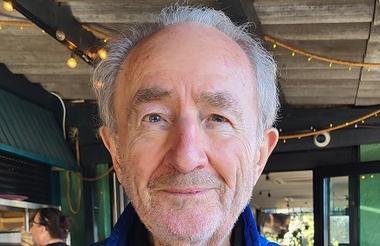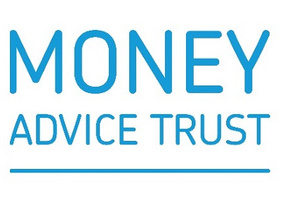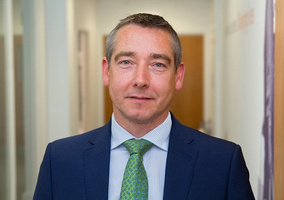This year, I celebrated 30 years of credit counselling in the House of Commons, reflecting on my time setting up the Money Advice Trust (MAT) and the Consumer Credit Counselling Service (CCCS), now known as StepChange.
Of course, in those days people only had hardnosed creditors to worry about. Now the state, and local authorities in particular, make life much harder for people short of money.
StepChange’s origins
I researched credit counselling in the US and found a perfect model in Texas – not in the buzzy capital Austin which I knew and loved, but in the staid oil town of Houston where there was a palpable determination to do good and to do things well.
Feeling somewhat guilty after a week "fact-finding" in America, I started my report as soon as the plane took off. My travelling typewriter of choice was then the Sinclair ZX. It only had one major drawback - there was no saving mechanism so the vivid report was in constant danger.
Fortune favours the brave and the thousand words lived to be posted to Vic Ware of General Electric (GE), whose idea it had been to visit the States. I had by then earned my corn as Vic's go-to man for making things happen.
Vic was GE’s supremo for good works in Europe. GE had entered the new UK credit market by taking over Burtons, where Vic worked. It was quick to recognise his star quality in retail credit and his early advocacy of credit referencing. Vic brought into our project team immediately CCN Systems (soon to be renamed Experian), Jeremy Burton, the dynast from his former employer, and his wife Carole who became our unpaid finance director at the Consumer Credit Counselling Service for years before and after launch.
I added Barclays to the mix thanks to Nick Cobban. Nick had worked with me at the Co-op and moved up. We also had the strong backing of the Consumer Credit Trade Association.
Eddie George, governor of the Bank of England, gave us the nod. Eddie and I had both been in the “secret classrooms” at Crail in Fife learning Russian, along with – but not alongside – Dennis Potter, Michael Frayn and Alan Bennett.
So we had the money, the stature and the oomph to get going. We all saw credit as a good thing, even if it needed to be handled with care. We all agreed that the credit industry needed to help people who got into difficulty both for simple humanity and to avoid costly regulation.
What we brought to Britain was not only the US approach but also the spirit of Texas. Its chief Terry Blaney trained our first cohort of counsellors in Houston free of charge and allowed us to join its systems where appropriate.
Early developments
The aim from the start was to be modern and hi tech in approach as well as practical and human. But the technical leap came a few years later with the arrival from GE of Gordon Bell. At GE, Gordon's job had been to fly in to companies worldwide which GE had just bought and adapt their systems so that they could report back seamlessly within weeks to GE HQ. From that dynamism Gordon now wanted more family time and that was our gain.
Within a few years most CCCS customers were reaching us online and we could help them effectively for as little as £6 a person. This was after meeting the high cost of constant improvement. Whenever the system showed people having problems, better code made it smooth again.
By 2010, Gordon and I were able to launch free cognitive behavioural therapy online and offer the first breathing space: clients who couldn't keep up payments were allowed to pay £1 a month. It signalled their wish to repay and effectively encouraged creditors to hold back from pursuit.
Many of these developments slowed after research commissioned by my successor showed that few people had heard of CCCS, which was no surprise since most of our customers were referred by their creditors. That led to the adoption of the trading name StepChange.
The name change led to an influx of clients whom the charity couldn’t readily help, less differentiation from the rest of the sector and ultimately more competition for the scarce resources available from central government.
Before the name change CCCS took no money from government. But StepChange received funding until January this year, when it and Christians Against Poverty were replaced by MAT and Gregory Pennington. Now MAT is recruiting heavily to meet the extra flood of demand.
Let’s found again
As a member of the government’s MidLife MOT Board, I have great hopes – together with expert fellow board member and King’s College professor Rachel Jenkins – of encouraging the Department of Work and Pensions (DWP) to introduce a successor to CCCS’ free CBT programme.
The Midlife MOT covers both financial and mental health. People in their 50s often have reach through the whole population through parents and children. Up to a million people are already online with the DWP so the new system would only face setup costs (with which charitable players are ready to help) and not marketing cost of attracting users.
I am also working on a new book, encouraging people to found new ventures, under the working title: “Let’s found again”. It features CCCS, MAT, CIFAS, some similarly well-known names and others who have vanished as though they have never been.
On the cusp is the most recent – Action for Financial Inclusion. This community interest company is now helping Scots become financially resilient through payroll saving and awaits a second round of funding to share its success with the rest of the UK.
Related Articles











